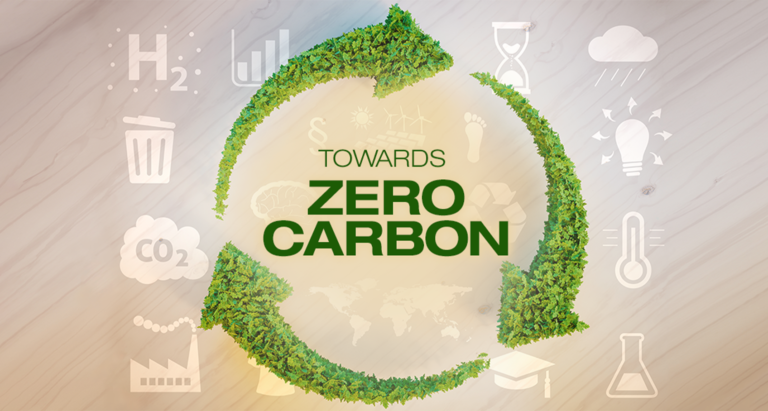
Salah satu penyebab isu lingkungan saat ini adalah besarnya emisi karbon atau gas rumah kaca, terutama dari perusahaan-perusahaan besar. Efek gas rumah kaca mengakibatkan perubahan temperatur bumi yang menjadi semakin tinggi, sehingga terjadi perubahan iklim di berbagai belahan dunia. Perlu adanya aksi berkelanjutan dari perusahaan untuk mencegah hal ini terjadi.
Dalam misi mencapai masyarakat berkelanjutan, netral karbon harus dicapai sebagai salah satu tujuan. Dengan netral karbon, keseimbangan antara karbon yang dikeluarkan dan diserap tercapai, sehingga tidak ada lagi emisi karbon.
Tahun lalu, KUBOTA mendeklarasikan visi lingkungan 2050, yaitu bagaimana bisnis KUBOTA dapat berdampingan untuk mengatasi masalah-masalah sosial, termasuk isu lingkungan. Untuk mencapai hal tersebut, KUBOTA berkomitmen untuk mewujudkan netral karbon, dengan penghematan energi di pabrik dan seluruh departemen termasuk dalam bidang penelitian dan pengembangan, penghadaan, logistik, serta penjualan sehingga dapat mengurangi emisi gas rumah kaca.
“Saya yakin dalam inisiatif ini dengan adanya sinergi erat antara teknologi dan bisnis di sektor makanan, air, dan lingkungan akan mendorong langkah besar menuju masa depan grup KUBOTA”, ujar Yuichi Kitao, Presiden dan Direktur Representatif KUBOTA Corporation. Sebagai wujud nyata dari komitmen ini, KUBOTA melakukan evolusi pertanian yang semakin canggih sehingga dapat mendorong penghematan energi dan sumber daya serta mengurangi penebangan hutan dan perusakan alam untuk perluasan ladang pertanian.
Selain itu, upaya juga dilakukan dengan teknologi mesin pertanian KUBOTA, seperti manajemen air untuk mengendalikan produksi gas metana di sawah. Hal ini diharapkan dapat berkontribusi menurunkan emisi gas rumah kaca di masyarakat secara keseluruhan.
“Mari kita mulai dengan apa yang bisa kita lakukan dari diri sendiri. Masalah sosial bisa teratasi bila kita berinisiatif untuk memulai dan menjawab tantangan untuk mewujudkan masa depan baru netral karbon yang menjadi cita-cita bersama masyarakat,” tutup Yuichi Kitao.
